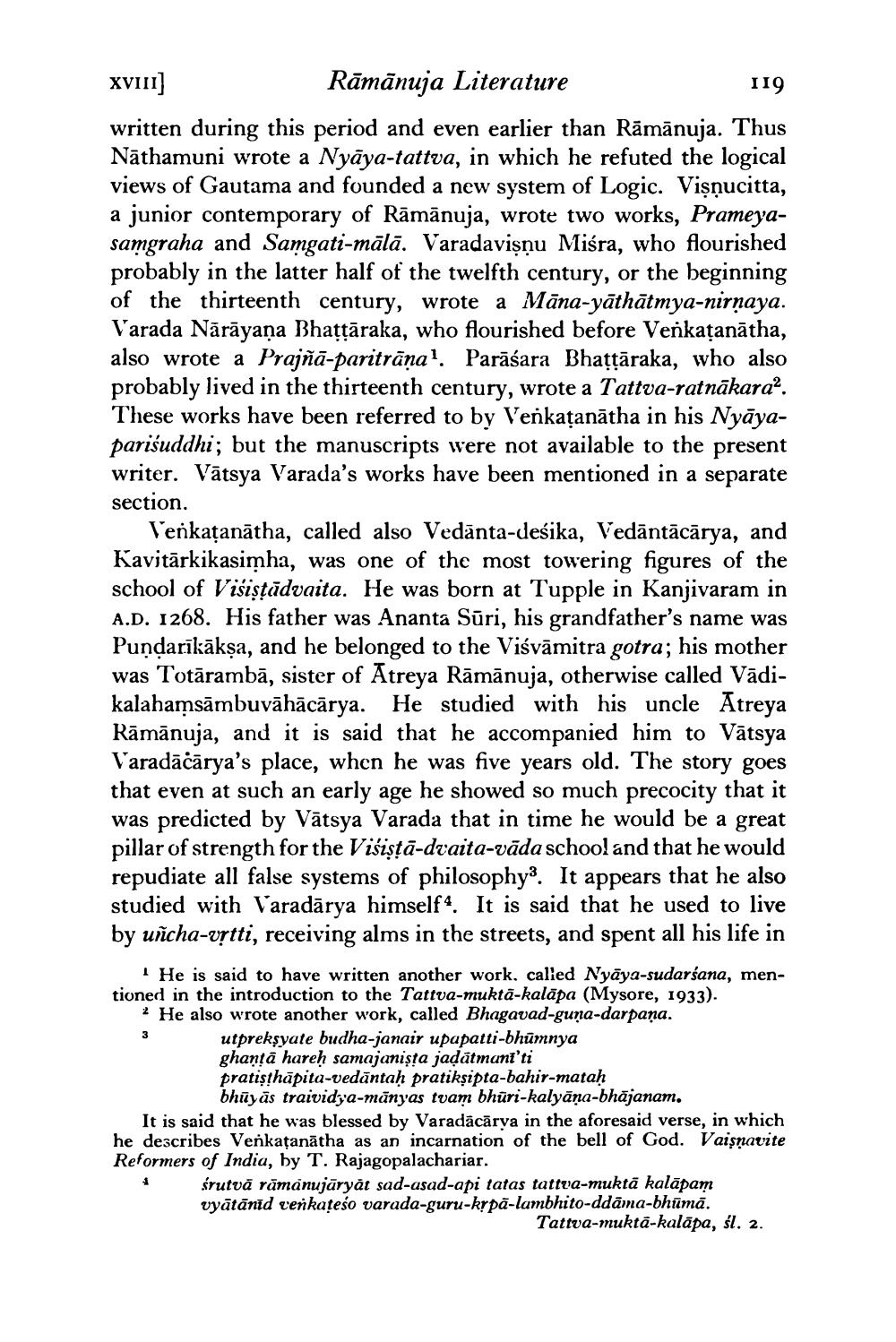________________
XVIII) Rāmānuja Literature
119 written during this period and even earlier than Rāmānuja. Thus Nāthamuni wrote a Nyāya-tattva, in which he refuted the logical views of Gautama and founded a new system of Logic. Vişnucitta, a junior contemporary of Rāmānuja, wrote two works, Prameyasamgraha and Samgati-mālā. Varadavişņu Miśra, who flourished probably in the latter half of the twelfth century, or the beginning of the thirteenth century, wrote a Māna-yāthātmya-nirnaya. Varada Nārāyaṇa Bhattāraka, who flourished before Verkațanātha, also wrote a Prajñā-paritrānal. Parāśara Bhattāraka, who also probably lived in the thirteenth century, wrote a Tattva-ratnākara?. These works have been referred to by Verkațanātha in his Nyāyaparisuddhi; but the manuscripts were not available to the present writer. Vātsya Varada's works have been mentioned in a separate section.
Venkațanātha, called also Vedānta-desika, Vedāntācārya, and Kavitārkikasimha, was one of the most towering figures of the school of Visişțūdvaita. He was born at Tupple in Kanjivaram in A.D. 1268. His father was Ananta Sūri, his grandfather's name was Pundarīkākṣa, and he belonged to the Viśvāmitra gotra; his mother was Totārambā, sister of Atreya Rāmānuja, otherwise called Vādikalahamsāmbuvāhācārya. He studied with his uncle Atreya Rāmānuja, and it is said that he accompanied him to Vātsya Varadācārya's place, when he was five years old. The story goes that even at such an early age he showed so much precocity that it was predicted by Vātsya Varada that in time he would be a great pillar of strength for the Višistā-dvaita-vāda school and that he would repudiate all false systems of philosophys. It appears that he also studied with Varadārya himself. It is said that he used to live by uñcha-vștti, receiving alms in the streets, and spent all his life in
I He is said to have written another work, called Nyāya-sudarśana, mentioned in the introduction to the Tattva-muktā-kalāpa (Mysore, 1933). ? He also wrote another work, called Bhagavad-guna-darpana.
utpreksyate budha-janair upapatti-bhūmnya ghantā hareh samajanista jadätmant'ti pratisthāpita-vedāntaḥ pratikșipta-bahir-matah
bhūyās traividya-mānyas tvam bhūri-kalyāna-bhājanam. It is said that he was blessed by Varadācārya in the aforesaid verse, in which he describes Venkatanātha as an incarnation of the bell of God. Vaişņavite Reformers of India, by T. Rajagopalachariar.
śrutvā rāmánujāryāt sad-asad-api tatas tattva-muktā kalapam vyātānid venkateso varada-guru-krpā-lambhito-ddāma-bhūmā.
Tattva-mukta-kalāpa, śl. 2.




